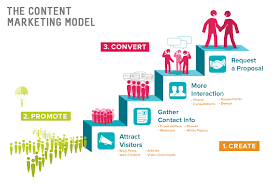The Power of Digital Marketing and Content Marketing
In today’s digital age, businesses are constantly seeking new ways to reach and engage their target audience. Two powerful strategies that have emerged as game-changers in the marketing world are digital marketing and content marketing.
Digital Marketing:
Digital marketing encompasses a wide range of online tactics aimed at promoting products or services through digital channels. This includes social media marketing, search engine optimization (SEO), email marketing, pay-per-click advertising, and more. The beauty of digital marketing lies in its ability to target specific demographics, track performance metrics in real-time, and adjust strategies accordingly.
With the rise of social media platforms and the increasing use of mobile devices, digital marketing has become an essential tool for businesses looking to connect with their audience on a more personal level. By leveraging data analytics and consumer insights, companies can create targeted campaigns that resonate with their customers and drive conversions.
Content Marketing:
Content marketing focuses on creating valuable, relevant content to attract and retain a specific audience. This content can take many forms, including blog posts, videos, infographics, whitepapers, e-books, and more. The key to successful content marketing is providing information that educates, entertains, or inspires your target audience without directly selling to them.
By developing a strong content strategy that aligns with your brand values and speaks to the needs of your audience, you can establish trust and credibility within your industry. Quality content not only helps build brand awareness but also drives organic traffic to your website and improves search engine rankings over time.
The Synergy Between Digital Marketing and Content Marketing:
When combined effectively, digital marketing and content marketing can create a powerful synergy that amplifies your brand’s online presence. By integrating compelling content into your digital campaigns, you can capture the attention of potential customers at every stage of the buyer’s journey.
Whether it’s crafting engaging social media posts that drive traffic to your latest blog article or optimizing your website for SEO with keyword-rich content, the possibilities are endless when you harness the power of both digital marketing and content marketing strategies.
In conclusion, embracing digital marketing and content marketing as integral components of your overall marketing strategy can help you stand out in a crowded online marketplace. By delivering valuable content through targeted digital channels, you can connect with your audience on a deeper level and drive meaningful engagement that leads to long-term success.
6 Key Advantages of Digital and Content Marketing for Effective Audience Engagement
- Target specific demographics for precise audience reach.
- Cost-effective compared to traditional marketing methods.
- Enhanced brand visibility and customer engagement online.
- Builds trust and credibility with valuable, relevant content.
- Drives organic traffic to websites and improves SEO rankings over time.
- Educates and informs the target audience without direct selling tactics.
7 Challenges in Digital and Content Marketing: Navigating Saturation, Ad Fatigue, and More
- 1. Saturation
- 2. Ad fatigue
- 3. Information overload
- 4. Privacy concerns
- 5. Algorithm changes
- 6. Content quality control
- 7. Return on investment (ROI) measurement
Target specific demographics for precise audience reach.
One significant advantage of digital marketing and content marketing is the ability to target specific demographics with precision, ensuring that your message reaches the right audience. By leveraging data analytics and consumer insights, businesses can tailor their marketing strategies to resonate with particular demographic segments based on factors such as age, location, interests, and online behavior. This targeted approach not only increases the effectiveness of marketing campaigns but also enhances engagement and conversion rates by delivering relevant content to those most likely to be interested in your products or services.
Cost-effective compared to traditional marketing methods.
Digital marketing and content marketing offer a significant advantage in terms of cost-effectiveness when compared to traditional marketing methods. By leveraging online platforms and creating engaging content, businesses can reach a wider audience at a fraction of the cost of traditional advertising channels such as print or TV. With digital marketing, targeted campaigns can be tailored to specific demographics, ensuring that resources are allocated efficiently to maximize ROI. Similarly, content marketing allows brands to create valuable and shareable content that attracts organic traffic over time, reducing the need for expensive paid advertising. Overall, the affordability and scalability of digital marketing and content marketing make them indispensable tools for businesses looking to achieve their marketing goals within budget constraints.
Enhanced brand visibility and customer engagement online.
Enhanced brand visibility and customer engagement online are key benefits of digital marketing and content marketing strategies. By leveraging digital channels and creating compelling content, businesses can increase their online presence and reach a wider audience. Through targeted campaigns and engaging storytelling, companies can connect with customers on a more personal level, fostering stronger relationships and building brand loyalty. This increased visibility and engagement not only drive traffic to websites but also help establish a memorable brand identity in the competitive digital landscape, ultimately leading to improved customer retention and business growth.
Builds trust and credibility with valuable, relevant content.
One significant advantage of digital marketing and content marketing is their ability to build trust and credibility with valuable, relevant content. By consistently delivering high-quality information that educates, entertains, or inspires the target audience, businesses can establish themselves as authoritative sources within their industry. This trustworthiness not only fosters stronger relationships with customers but also enhances brand reputation and loyalty over time. The authenticity and value provided through strategic content creation play a crucial role in earning the trust of consumers and differentiating a brand in a competitive market landscape.
Drives organic traffic to websites and improves SEO rankings over time.
One significant advantage of digital marketing and content marketing is their ability to drive organic traffic to websites and enhance SEO rankings gradually. By consistently creating high-quality, relevant content that resonates with the target audience, businesses can attract more visitors to their websites through search engines. This organic traffic not only increases brand visibility but also helps improve search engine rankings over time, ultimately leading to sustained online visibility and credibility in the competitive digital landscape.
Educates and informs the target audience without direct selling tactics.
One of the key advantages of digital marketing and content marketing is their ability to educate and inform the target audience without resorting to direct selling tactics. By providing valuable and relevant information through engaging content, businesses can establish themselves as trusted authorities in their respective industries. This approach not only fosters a stronger connection with customers but also helps build brand loyalty and credibility over time. By focusing on educating rather than selling, companies can create a more meaningful and authentic relationship with their audience, ultimately leading to increased customer trust and long-term success.
1. Saturation
In the realm of digital marketing and content marketing, one significant challenge that businesses face is saturation. The vast digital landscape is overflowing with marketing content, creating a highly competitive environment where standing out becomes increasingly difficult. With countless brands vying for consumers’ attention through various online channels, breaking through the noise and capturing audience engagement requires innovative strategies and compelling content that truly resonates with the target market. The saturation of marketing content underscores the importance of creativity, authenticity, and strategic planning to cut through the clutter and make a lasting impact in a crowded online space.
2. Ad fatigue
Consumers may face ad fatigue as a significant drawback of digital marketing and content marketing strategies. The relentless exposure to online advertisements can overwhelm individuals, resulting in a decline in their interest and engagement levels. The constant bombardment of ads across various digital platforms may lead to a sense of saturation, causing consumers to tune out or actively avoid promotional content. Ad fatigue poses a challenge for marketers to find innovative ways to capture and maintain the attention of their target audience amidst the sea of competing messages in the digital landscape.
3. Information overload
In the realm of digital marketing and content marketing, a significant drawback is the issue of information overload. In today’s digital landscape, consumers are bombarded with a constant stream of content from various sources. This inundation of information can lead to consumer fatigue, causing individuals to feel overwhelmed and tune out marketing messages. As a result, businesses face the challenge of breaking through the noise and capturing the attention of their target audience in a meaningful way. Strategies that prioritize quality over quantity and focus on delivering relevant, personalized content can help mitigate the effects of information overload and ensure that marketing efforts resonate with consumers amidst the digital clutter.
4. Privacy concerns
Privacy concerns are a significant con associated with digital marketing and content marketing. The collection and utilization of consumer data for targeted advertising purposes can raise red flags regarding privacy infringement. This practice has the potential to lead to backlash from consumers who may feel their personal information is being exploited without their consent. As regulations surrounding data privacy continue to evolve, businesses must navigate this delicate balance between utilizing consumer data for marketing purposes while respecting individuals’ right to privacy.
5. Algorithm changes
One significant drawback of digital marketing and content marketing is the constant challenge posed by algorithm changes. Search engine algorithms and social media platforms regularly undergo updates that can significantly impact the visibility and reach of marketing content. These algorithm changes can sometimes lead to fluctuations in organic search rankings, sudden drops in social media engagement, or unexpected shifts in advertising performance. Adapting to these algorithm updates requires marketers to stay vigilant, continuously monitor changes, and adjust their strategies accordingly to maintain their online presence and effectiveness in reaching their target audience.
6. Content quality control
One significant drawback of digital marketing and content marketing is the challenge of content quality control. Ensuring a high standard of content production consistently can prove to be a time-consuming and resource-intensive task for businesses. From brainstorming creative ideas to editing and refining the final output, maintaining quality throughout the content creation process requires careful attention to detail and a significant investment of time and resources. Failure to uphold consistent quality standards in content can diminish the effectiveness of marketing efforts and impact the overall brand perception negatively.
7. Return on investment (ROI) measurement
Measuring the return on investment (ROI) of digital marketing and content marketing initiatives can pose a significant challenge due to the complexity involved in accurately attributing results to specific campaigns. Determining the true impact of these efforts requires sophisticated analytics tools and a deep understanding of consumer behavior across various online channels. Without a clear and standardized method for quantifying ROI, businesses may struggle to assess the true value of their marketing investments and make informed decisions on resource allocation.




